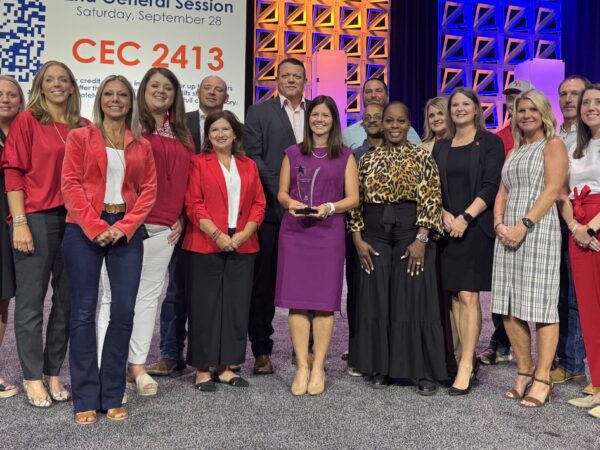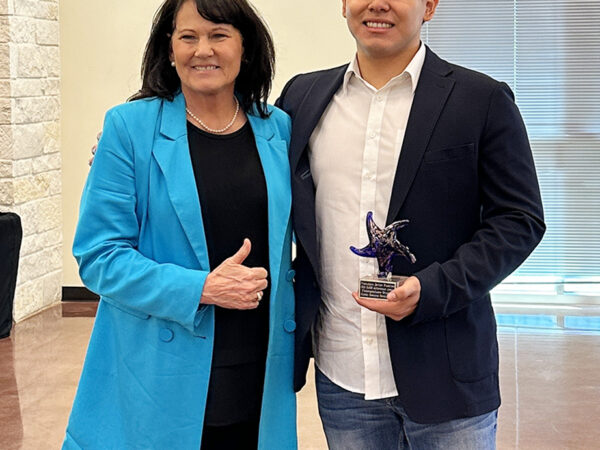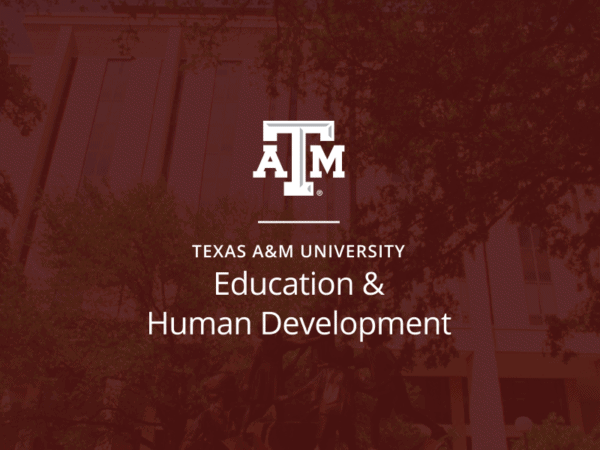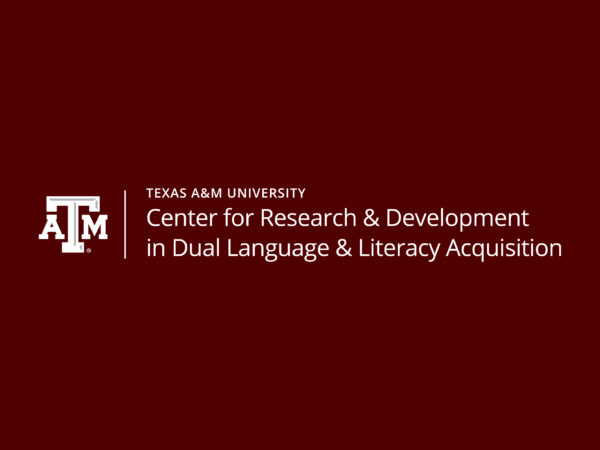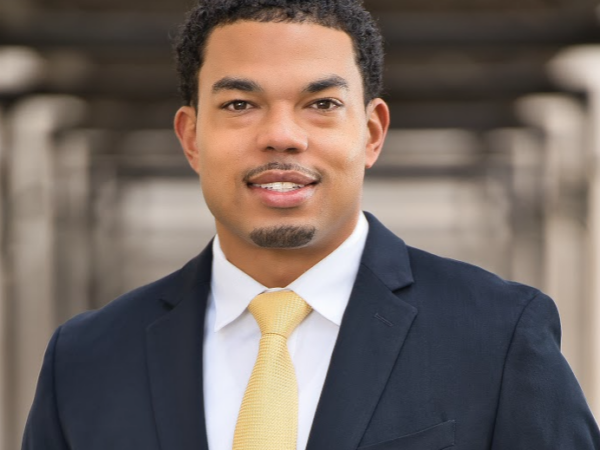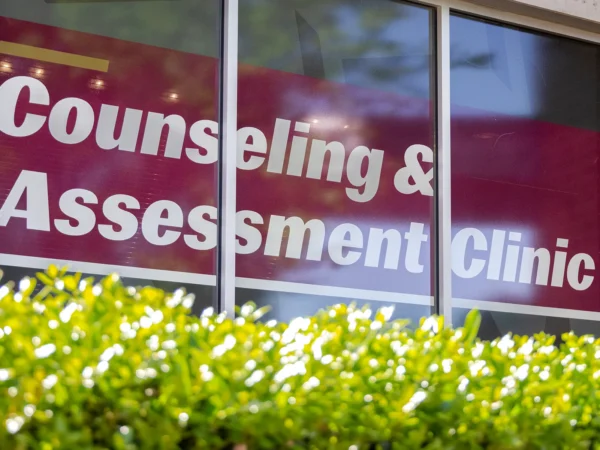Serving All Texans: Providing Tools For Life
Helen Keller penned the essay, Optimism. In it she wrote these now famous words, “The highest form of education is tolerance.”
The College of Education and Human Development expands upon this principle with core values that promote diversity, understanding, civic duty and community outreach. With a history rich in selfless service and compassion, the college serves all Texans.
Good health and wellness should be available to all individuals regardless of disability or functional need. When caring for individuals with mobility impairments, other disabilities or advanced age, the path to improving quality of life for all may seem daunting. To meet the special needs of these individuals, our researchers are responding in new and innovative ways.
OUTREACH AND PROGRAMS FOR PUBLIC HEALTH AND MENTAL WELL-BEING
Texas A&M and the College of Education and Human Development have long supported the needs of people with disabilities.
In 2011, the Texas wildfires ravaged millions of acres of land. Nearly 80 square miles of terrain and more than 2,800 homes were destroyed in a series of infernos that doubled the destruction of previous fire seasons.
The CEHD played an integral part in rescue efforts by training first responders how to interact with people with disabilities in a timely and effective way.
Center stage in this training effort is Mobile TIPS, a mobile-based website designed by Dr. Laura Stough and her Project REDD team at the Center on Disability and Development.
Mobile TIPS serves as a quick-access platform that provides emergency crews up-to-date instructions and resources – enabling them to help those with disabilities or special needs.
Initially planned as a mobile app, Project REDD hit an early roadblock.
It was safe to assume government employees using employer-supplied cell phones would make up the majority of app users. Due to security restraints, however, many government phones prohibit the use of third party applications –the category that Mobile TIPS falls under. Stough and her team quickly turned the app concept into a website instead.
When viewed from any mobile device, the site looks and acts like an app with clickable icons and easy navigation.
The program has been a smashing success – to date Mobile TIPS has been used more than 9,000 times.
“Time is of the essence in an emergency or disaster situation,” said Stough. “First responders need to know the appropriate and most effective way of interacting with and assisting people with disabilities.”
Since the fires, emergency management teams from around the nation have contacted Stough, requesting to incorporate Mobile TIPS in their first response planning.
“We’re currently helping officials in Hawaii, Pennsylvania and California create their own version of our program – this tool can help first responders during all types of hazards,” says Stough.
“Disasters and their effect on vulnerable populations has been an area of great research interest to me in the past decade,” says Stough. “It is truly a privilege to have my research applied to assist people in time of critical need.”
What started as a local rescue tool for first responders has since turned into a nation-spanning initiative to provide world-class care for all people, regardless of their disability status.
PATHS TO SUCCESS
The Center on Disability and Development also hosts the Postsecondary Access and Training in Human Services (PATHS) program. PATHS is an expanding certificate program that trains Direct Support Professionals (DSP) – a profession that is in constant demand across the state. PATHS is a two -semester inclusive certificate program where students with and without disabilities gain the skills to become a DSP. Students enrolled in the PATHS program learn how to support people with disabilities in an inclusive community setting.
DSPs provide various methods of support, including but not limited to: assisting an individual with mobility needs, helping people become more active, assisting people in developing independent living skills and providing general support for people with disabilities.
“Direct Support is such a broad employment area,” says Dr. Cheryl Grenwelge, program director and assistant professor. “DSPs provide services to children and adults with disabilities, as well as the elderly. They also work with the individual they are supporting to identify interests and then provide the help and support to maximize opportunities to engage in those activities. That’s often the missing piece of personal care and that’s what makes this program so fantastic.”
Twelve students who successfully completed the first semester are currently active in their supervised paid practicum, and have been since December 2012. They were hired by a variety of local direct support providers and are now actively working in the field for providers including Brenham Outreach Advisory Council, American Habilitation Services, Brazos Valley Independent Living Center and Comfort Keepers.
The PATHS program has been a huge success thanks to our provider practicum partners, the Brazos Valley Center for Independent Living, and the Texas Department of Rehabilitation Services. The fall 2013 semester enrollment is expected to be maxed out and the team is looking toward expansion.
HELPING FAMILIES AND CHILDREN WITH SPECIAL NEEDS
Constance Fournier, a clinical professor in the department of Educational Psychology, is collaborating with colleagues at Texas A&M to create a tool to assess the care needs and improve the quality of life of tens of thousands of children in Texas with special health care needs.
Working with the Department of State Health Services case managers, Texas A&M researchers helped determine how many hours of personal care service (PCS) are needed by families with children who have special needs.
The team of researchers is composed of faculty from the College of Education and Human Development, Texas A&M University Health Science Center, and Texas A&M University. The team developed and implemented an assessment tool used to determine requirements for children that participate in the Medicaid Early Prevention, Screening, Diagnostic and Treatment (EPSDT) program and receive Medicaid PCS.
“In combining the creativity and diverse expertise of our team, we are able to help children with special needs and their families receive services that can improve their quality of life,” says Fournier.
PCS includes assistance with daily living skills, such as help with bathing, locomotion, toileting, eating, dressing, personal hygiene, taking medication and preparing meals.
DSHS and home health agencies will use the instrument to develop a plan of care that will address each child’s need for nursing care, therapy, assistive devices and personal care.
The team’s findings have been published in the American Psychological Association journal, Rehabilitation Psychology, in the Health Research and Educational Trust Health Services Research and the American Public Health Association’s Disability and Heath Journal.
Because of the success of this assessment tool, the team was tasked by the Health and Human Services Commission to develop an assessment instrument for children who receive any type of Medicaid home care, in addition to PCS.
“It is a privilege to work with colleagues with such a variety of expertise. We are able to bounce ideas off of each other and create a product that is greater than the sum of the parts,” Fournier says about the team.
For media inquiries, contact our Media Relations Coordinator, Ashley Green.
Fundraising
To learn more about how you can assist in fundraising, contact Amy Hurley, Director of Development ahurley@txamfoundation.com or 979-847-9455


